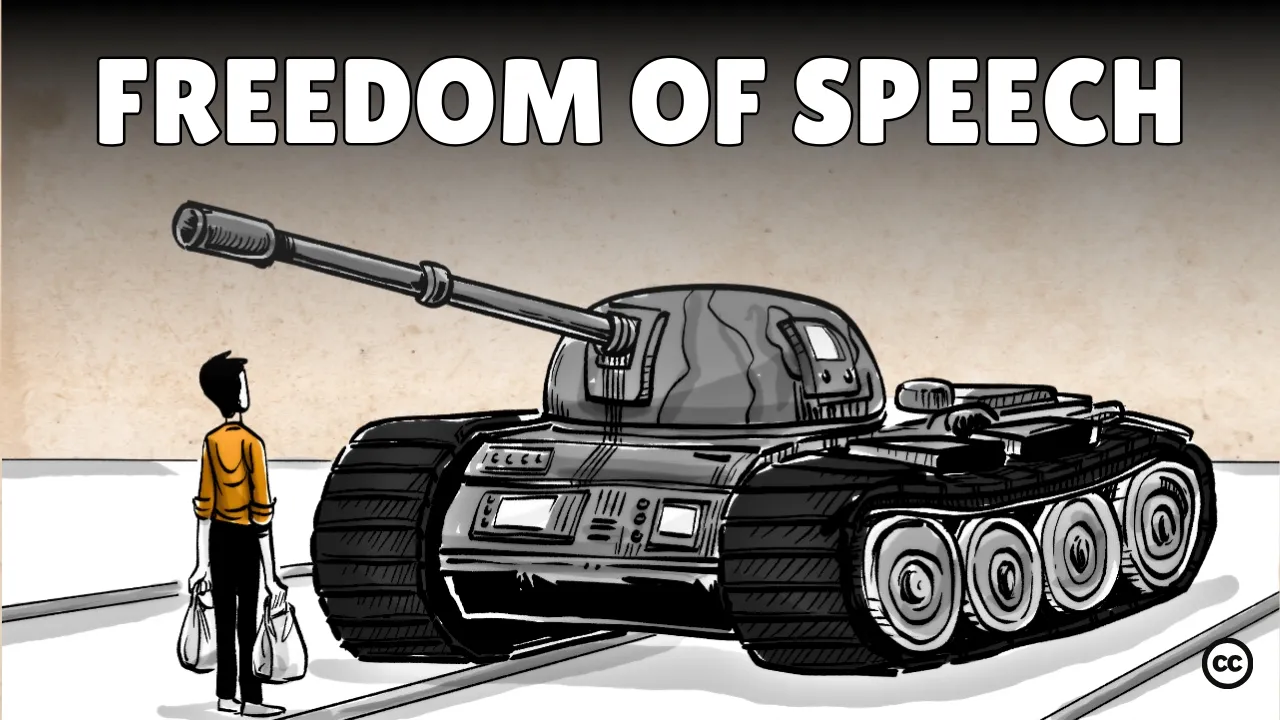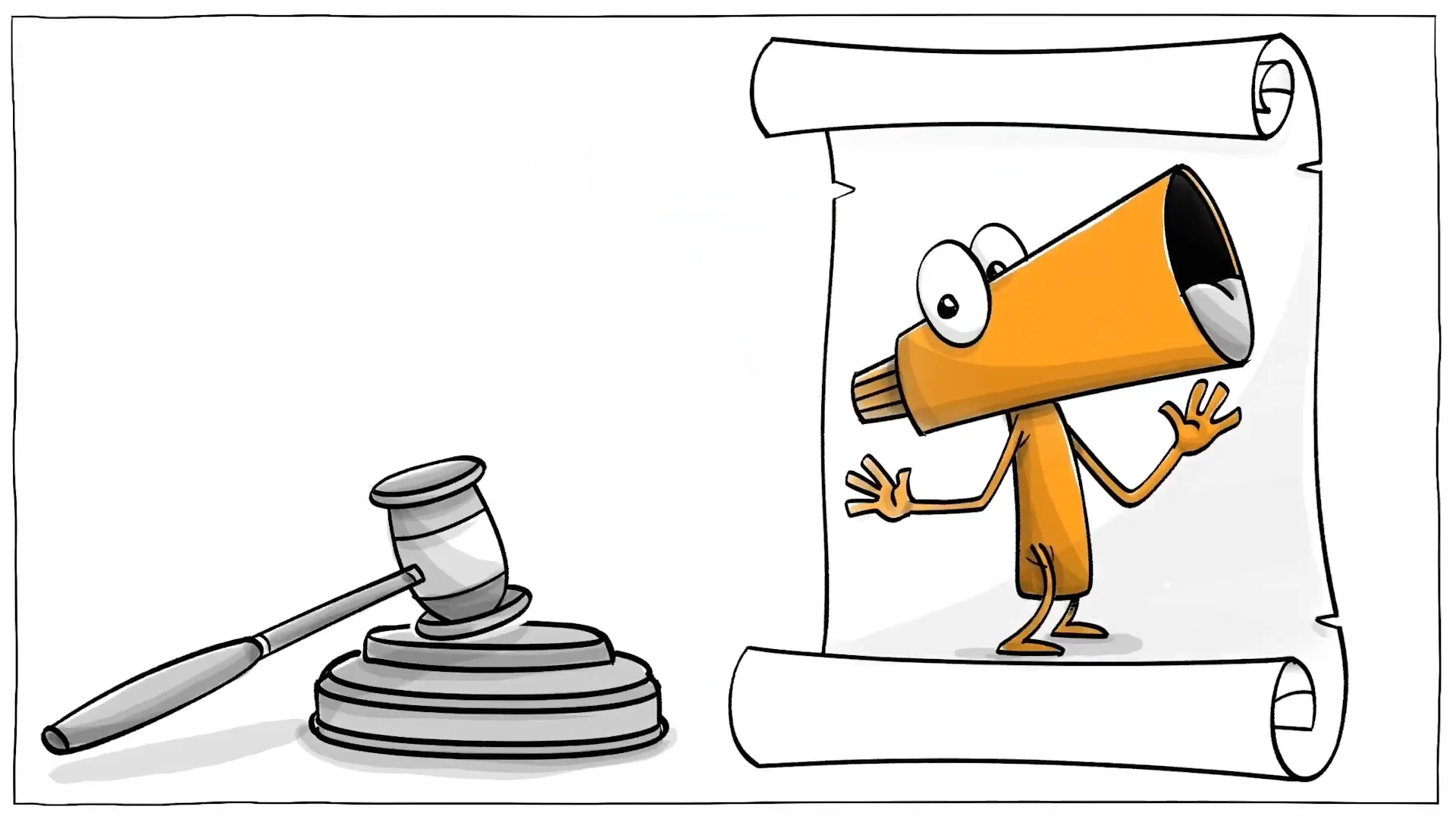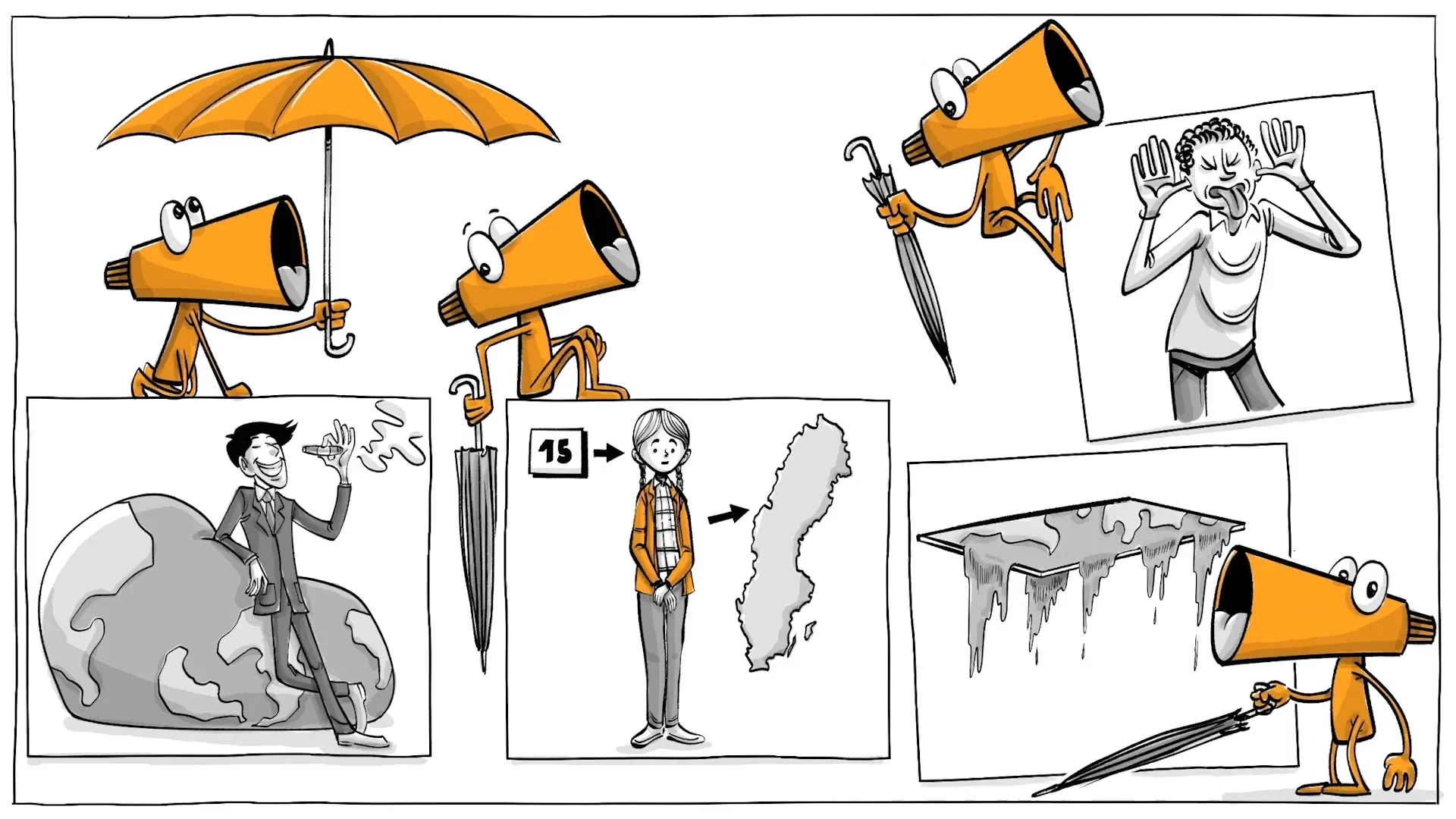Jan 3, 2025
Understanding Freedom of Speech

Introduction
This is Greta Thunberg and this is the Swedish parliament. Thunberg is 15 years old, and she is doing a "school strike for climate.” Sitting there alone, she is smiled at and even insulted. Some say, go back to school. Others tell her to give up. But she doesn't want to listen and continues. And soon there are a few others, who like her ideas and admire her commitment. And then, one day, the local press comes, does an interview and Greta's photo goes around the world. The few that joined Greta soon became many and many became millions, and in countries all around the world, young people began expressing their opinions about climate change because they want to build a better future. Greta used rights that are laid down in the Universal Declaration of Human Rights. Accordingly, everyone has the right to express their opinion freely and to meet freely and peacefully with others. So what exactly is freedom of speech and where does it end?
What is Freedom of Speech?
Freedom of speech is a principle that supports our freedom to articulate opinions and ideas without the fear of retaliation, censorship, or legal sanction. It protects all forms of communication, from speech, to text, to art and is a constitutional law of liberal societies. Freedom of speech includes having access to information to prevent censorship, and limits state control over what we should and what we shouldn’t know and say. It means freedom to express an opinion regardless of whether the opinion is justified or unfounded, emotional or rational, valuable or not. And it means you are also allowed to remain silent and say nothing at all.

Understand the Scope
One form of expressing your opinion is forming an assembly, which usually begins with 2 people, who come together with a common purpose. But freedom of speech has its limitations. For example, it doesn't mean we can state something as a fact if it can be proven wrong by objective standards. So when Greta says: "The global biosphere is being sacrificed so that rich people can live in luxury," she expresses an opinion, because her claim cannot be objectively verified. But when she begins a speech with: "My name is Greta Thunberg, I am 15 years old. I am from Sweden,” then that’s a factual assertion, because you can check if that’s all correct.

In other words: The first statement is protected by the freedom of speech, because it forms an opinion. Greta introducing herself is nice, but it’s not protected, because it is just a factual statement which can be verified. Also not protected is insulting others or the assertion of untrue facts. Freedom of assembly also has its limits. Gatherings must take place peacefully and must not jeopardize public safety, which can happen if people bring arms, or riot and become violent. So Greta is allowed to sit in front of the parliament with posters, but she is not allowed to smear the building with slogans.
Limitation
Greta used her freedom of speech to inspire millions to help put climate change on top of the political agenda. And while we certainly want more people to stand up for what they believe in, many of us live in societies in which expressing one's opinions isn’t possible. So what do you think about freedom of expression? Do we need more? Do we need less? Where does it start and where does it end?

Conclusion
Freedom of speech is a fundamental right that empowers individuals to express their thoughts and opinions. It plays a crucial role in democratic societies, enabling open dialogue and the exchange of ideas. However, it also comes with responsibilities and limitations to ensure that it does not infringe upon the rights of others or public safety. Understanding where freedom of speech begins and ends is vital for fostering a society that values both expression and respect.
This article was created from the video Freedom of Speech with the help of AI. It was reviewed and edited by a human.



